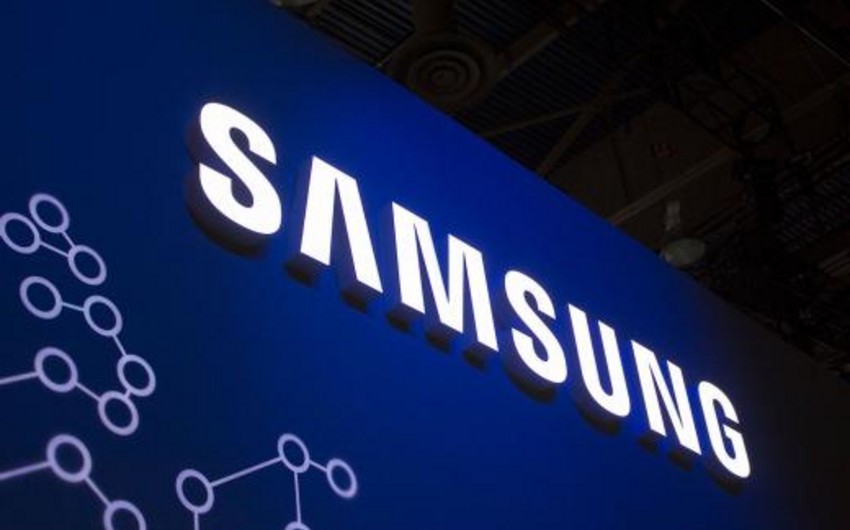The US government will offer up to $6.4 billion in direct funding to Samsung Electronics to build chipmaking facilities in central Texas to produce the world's most advanced semiconductors, the Commerce Department announced on Monday, Report informs via Nikkei Asia.
While this is smaller in absolute terms than the grants awarded to Intel and TSMC under the CHIPS and Science Act of 2022, it is the largest of the three relative to the size of the company's promised investment.
The grant will help Samsung build two chip factories to mass produce 2-nanometer chips, an advanced packaging facility and a research and development fab, all in Taylor, Texas, Commerce Secretary Gina Raimondo told reporters on Sunday. Samsung will also expand an existing facility in Austin, Texas, to produce power-efficient chips critical for aerospace, defense and automotive applications.
Samsung's total investment in the US will more than double to roughly $45 billion, from the previous $17 billion, a senior US official said. The first fab is slated to begin production in 2026, and the second in 2027, the same year the R&D facility is expected to open, the official said, adding that two dozen suppliers have indicated they will move to the US to collaborate on the new Samsung cluster.
"To put in perspective how massive these facilities are, just the first leading-edge fab is the size of 11 football fields. And Samsung is building two of them," Raimondo told reporters.
The grant follows the $8.5 billion awarded to Intel and the $6.6 billion to Taiwan Semiconductor Manufacturing Co. and is part of efforts to turn the US into a major hub for leading chip manufacturing. Among the top three chipmakers, Samsung stands to receive the biggest support proportional to the amount of investment it has pledged -- in this case, the subsidies are equivalent to around 14% of its planned investment.
Unlike with TSMC and Intel, the government did not announce any loans to Samsung as part of its support. The South Korean company has hefty cash reserves. Its cash and cashable assets stood at 69.1 trillion won ($49.9 billion) at the end of December.
Only Samsung, TSMC and Intel are still in the global race to produce the most cutting-edge chips. Each is working to develop 2-nanometer chips for core processors used in computers and servers and to facilitate generative AI computing.
Samsung is the No. 2 player in the global foundry market, the business of making chips for outside clients, with a roughly 14% market share. TSMC is the clear leader, with a 61% share, Counterpoint data as of the last quarter of 2023 shows. Intel, which used to mainly produce chips for internal use, is also aiming to break into the foundry market to lure more chip developers to use its plants.
One advantage Samsung has is that it is also the world's top chipmaker of both DRAM and NAND flash memories, critical components for storage and computing for all types of electronics devices, especially for the ever more powerful chips needed for generative AI.
The announcement of the Samsung grant "is the third and final leg of President [Joe] Biden's plans to bring the manufacturing of leading edge semiconductors back to the United States after decades of concentration in Asia," Biden's national economic adviser Lael Brainard told reporters.
Samsung has committed to manufacturing chips directly for the US Department of Defense and will bolster national security, Brainard said.
The US government has also announced grants for older-generation chips under the CHIPS Act, such as $1.5 billion for GlobalFoundries, $162 million for Microchip Technology and $35 million for BAE Systems Electronic Systems.
Semiconductor companies from around the world have invested over $240 billion to revitalize US semiconductor manufacturing, Brainard said.
The senior official who briefed reporters said the advanced packaging facility will have features unique to Samsung. On top of 3D stacking, a method for producing high-bandwidth memory chips, Samsung will introduce so-called 2.5D integration to combine logic and memory chips into a single package.
"Samsung is a distinctive player in the industry. It's the only player in the industry that does both advanced memory and advanced logic," the official said. The company is "uniquely positioned to pull those things together into this packaging facility," he said.
The announcement comes as Samsung recovers from a long slump due to a downturn in the memory chip market. The company said earlier this month that its operating profit soared more than tenfold to 6.6 trillion won ($4.9 billion) in the first quarter from a year earlier amid expectations its semiconductor unit may have turned to profit for the first time in more than a year.
Analysts say that the large-scale investment highlights the importance that Samsung is placing on the US market.
"The US wants to produce semiconductors on its home soil, and most advanced semiconductor companies are based in the country. Samsung cannot go alone without meeting their standards," said Lee Seung-woo, head of research at Eugene Investment & Securities in Seoul. "Samsung recently suspended construction of its chip fab in Pyeongtaek. It shows that the company is putting its priority on the US rather than domestic [market]."


 https://static.report.az/photo/a55e4df3-113a-327e-8f6f-13e689c2c09f.jpg
https://static.report.az/photo/a55e4df3-113a-327e-8f6f-13e689c2c09f.jpg

